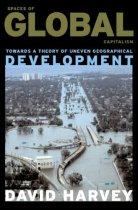内容简介
Prolific social theorist Harvey explains how a turn towards harshly neo-liberal policies in the 1970s and 80s, specifically in the U.S. (and its involvement in the economies of Chile and Mexico) and the UK, affected "the historical geography of global capitalism," and produced effects that range from dictatorial China's embrace of neo-liberalism-which Harvey understands as an effort to restore class power to the top elites-to the successful manipulation of the money supply in Japan and West Germany. But the main paradox of global neo-liberalism, Harvey argues, is that it does not promote real, fairly distributed economic growth. Tracing global development within capitalism, Harvey finds that the stories told about the situation-including the one where "backwards" countries need to "catch up"-are myths, since the system is not set up to support the actual development of most countries and populations, but rather to subjugate them. This is not a new idea, but Harvey provides a good (if dense) description of the current global state of affairs. He presents his own class-based framework for understanding "how the dynamics of political and class struggles power continuous changes in capitalism's uneven geographical development."
Copyright © Reed Business Information, a division of Reed Elsevier Inc. All rights reserved. ----From Publishers Weekly
【展开】
【收起】
下载说明
1、追日是作者栎年创作的原创作品,下载链接均为网友上传的的网盘链接!
2、相识电子书提供优质免费的txt、pdf等下载链接,所有电子书均为完整版!
下载链接

